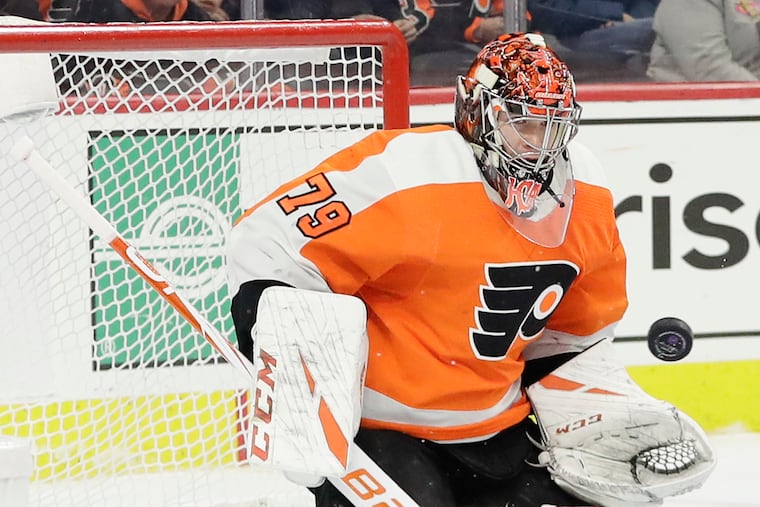If NHL returns with gimmicky 24-team tourney, it shouldn’t use it beyond this season | Sam Carchidi
The NHL is hoping to return and play games this summer, and a 24-team field seems to be gaining traction. If it is used, it needs to be just a temporary format.

If the NHL season is resumed and the Flyers win their first Stanley Cup since 1975, no one in these parts will question the integrity of the playoff format and call it a tainted title.
After all, the Flyers, who had the Eastern Conference’s fourth-best winning percentage when the season was paused March 12 because of the coronavirus outbreak, had established themselves as a worthy contender in coach Alain Vigneault’s first season in Philly.
In fact, if any team having a quality season wins the Cup, no one will be offended.
But if a team currently not in a playoff spot – say, Montreal, Chicago, or Arizona, for instance – somehow wins the Cup under a new, gimmicky format, well, most observers will call it a fluke, call it the Coronavirus Cup.
Welcome to the NHL during these unpredictable and unprecedented times.
Health(y) choices
The league and the Players Association have a difficult job. Foremost, they are trying to return to action and make things safe for the players and staff members. They should be applauded for their cautious and slow approach.
Assuming the medical experts say the games can resume without fans in attendance, both sides want to be fair to teams that had a chance to reach the playoffs when the season was stopped.
And, so, the league has floated a watered-down, 24-team plan for its return. Under the plan, 12 teams from each conference, an increase from the usual eight, would still have a shot at winning the Cup. Details are still sketchy, but one idea is to have some teams compete in play-in games, with the winners advancing to a 16-team playoff field, the same as in a normal season.
It has also floated a scenario in which the top two teams in each division – like the Flyers and Capitals in the Metro – meet in a short series to determine who gets the top seed. Under one proposal, the next four divisional teams would play best-of-three series to determine if they get into the field of 16.
While it’s admirable that the NHL is trying to be fair to as many teams as possible, it says here the league is erring by looking to increase the bracket.
As this space has stated, have eight teams in the playoffs – the top four in each conference, based on points percentage – and then have three rounds, like in the old days. Play five-game series in the Stanley Cup quarterfinals and semifinals, and a seven-game championship series.
Lowering the risk
The fewer teams involved and the fewer games that are played will reduce the chance of someone contracting the coronavirus. There are no guarantees, of course, that players and/or staff members won’t get sick, but it would at least make the odds more favorable.
The league, however, seems to be making traction with its 24-team format. Is it because of the much-needed TV revenue it would generate, or because it wants to be more equitable to the teams that have worked hard to be in a position to win the Cup?
According to reports, the NHL can earn up to $500 million in TV revenue if a 24-team format is adopted.
While there has been no firm commitment made to the format, it is getting lots of discussion and appears to be the leader in the clubhouse. After teams have small-group, on-ice sessions at practice arenas for a short time, the league hopes to have a three-week training camp in June. In the 24-team scenario, the season would restart in July, and a Stanley Cup champion probably wouldn’t be crowned until (yikes) late August or early September.
In other words, the Boys of Summer will not only pertain to baseball.
If a 24-team field (including play-in games) is adopted, here’s hoping it would not become a part of the NHL moving forward. Yes, it generates more revenue – especially when fans are allowed in buildings – and, yes, it creates more interest in cities where teams are hopelessly out of the normal playoff picture.
But it would make the 82-game regular season even more meaningless than usual.